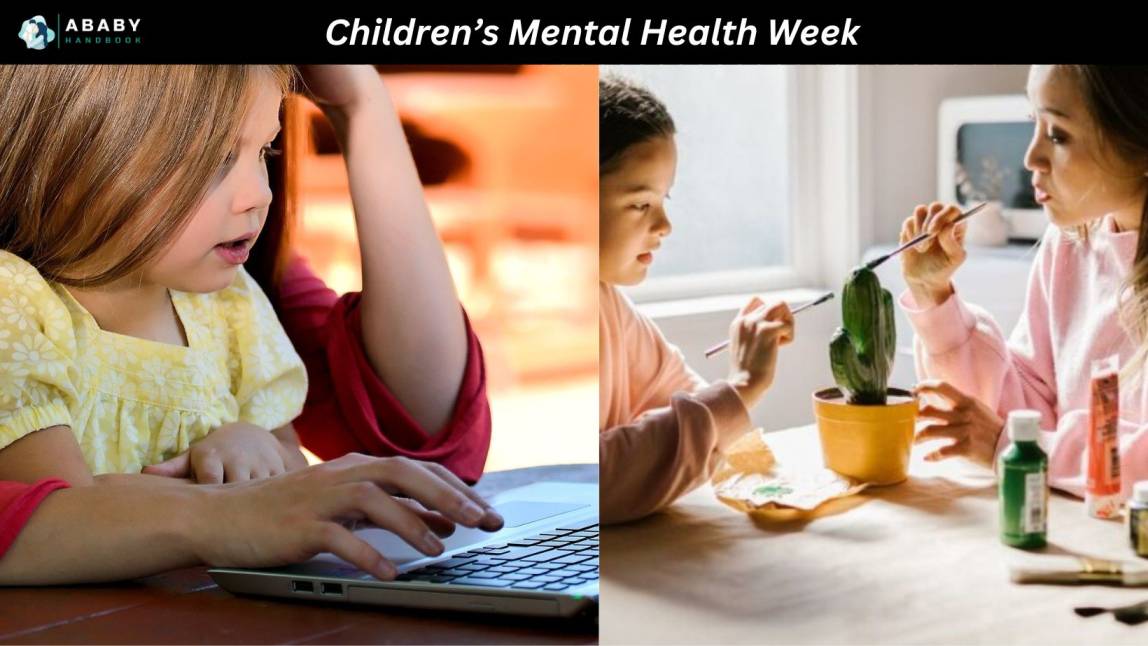

Image: Shutterstock
IN THIS ARTICLE
Regardless of how the equation is between the parents, children always love both the parents alike. But if the parents have constant disagreements, are separated or divorced, one can notice unusual behavior in the children. Sometimes they look like they are angry with you, and sometimes they seem afraid and withdrawn. Often, they can be rude too.
If you notice such behavior in your kids and think it is sudden or unusual, external influence, such as your spouse or ex could be manipulating them to go against you. Such an act or behavior is termed as parental alienation. It could severely affect your children and your relationship with them.
In this MomJunction post, we tell you more about parental alienation, its signs, how to fight it, and maintain a healthy relationship with your children.
What Is Parental Alienation?
Sponsored
When a parent tries to damage the relationship of the child or children with the other parent, it is called parental alienation. It is usually done by taking some extreme steps such as brainwashing, manipulating, or lying to the child about the other parent. The child could have severe behavioral and psychological issues, and their relationship with the other parent may be significantly damaged (1).
The parent who is alienating the child is called an alienator, and the other is called alienated.
We list a few parental alienation examples here to help you understand it more clearly. Note that every case is different, and these are just examples of certain situations.
- Your mother doesnt love you like she used to before. She has more friends now, and she likes to spend most of her time with them and not with you. Lying to the child.
- Your father doesnt earn much. Im afraid he wont be able to take good care of you. Criticizing the partner and showing them in a bad light.
- I am the one who manages all your requirements. Your mother can do nothing for you. Still, you take her side and not mine? Showing anger or manipulating the child.
Dealing with such harmful behavior by a parent is essential for the mental wellbeing of the child.
Signs Of Parental Alienation
Children who are being alienated from you behave differently. Some of the signs are listed here (2):
- The child may simply refuse to talk to or visit you, assuming everything said by the alienator parent is right. Or they may give a not-so-convincing reason for not meeting you. It could be termed as frivolous rationalization.
- The child may be rude and show hatred towards you and your extended family or friends.
- The child may have no feelings of guilt for their wrong behavior.
- The child may talk wrongly about you in front of others, say, teachers or friends. It could be regarded as spreading animosity.
- The child may perceive everything as good or right coming from the alienator parent, and bad and wrong about everything related to you. It could mean a lack of ambivalence from the child.
- The child may not accept anything positive coming from you. And they may always be taking the side of the alienator parent. It could be considered reflexive support.
- The child may not be able to gauge what is right and wrong but believes whatever the alienator parent says.
Your child is getting affected, and your relationship with them is being damaged. You cannot be silent about it. But how do you deal with such a situation?
Tips On Fighting Parental Alienation
Your spouse or ex is trying to keep you away from your child. You know they are wrong, and parental alienation needs to stop. Check out some tips to help yourself to fight it.
- Collect proof: When you suspect your ex or spouse is trying to alienate you from your child, you need to record all the evidence. If they texted you or called you to say, stay away from my child, or you are not fit to take care of my child, or something similar, then save the text or record all calls with them. Keep gathering such evidence that may help you prove parental alienation in the court.
- Figure out and record patterns: You may begin to understand your child is being alienated from you when they start reacting unusually. This is when you should make a note of it. For instance, make a note when the child said, you are bad, or refused to meet you, along with the date and context. Recording these patterns will be easy for you to analyze your childs changing behavior, and you may be able to help them.
- Talk to your children: It may be challenging to find an opportunity to even talk to your child. But when you do, sit down with them and help them understand what is happening, and how much you love them. Remind them of those good times when you had great fun together. Explain to them that those days can come back, and they will be taken care of and be loved without any conditions.
- Tread carefully and make no mistakes: Your ex or your spouse may have put a lot of blame on you. Instead of reacting to it, you should stay strong and prove them wrong. See that your positives are coming out. Even if you are angry, try to calm down because even a single wrong act may tilt the scales further to their side.
- Hire a legal representative: If the need arises, contact a legal representative too to protect your child. Give them all the proofs you collected and explain the situation clearly. It may not be easy to make the judiciary understand what you are going through but approaching them with the help of a lawyer and sufficient evidence could help.
- Do not give up: Fighting and proving that you are right, and your ex or spouse is wrong could be bothersome and exhaustive too. But you should carry on the fight for your children, who are victims of parental alienation and being used by your ex for their benefit. Your kids might be telling on you or bad-mouthing you but understand that they may have been brainwashed. So, never give up fighting for them.
- Reunification therapy: When a child is wrongfully alienated from one of the parents, parental reunification therapy helps in reuniting them. One can get into the therapy voluntarily or by a court order.
Parental alienation may have a serious impact on the child or children. Though the child may not be able to perceive it, the effects may continue for many long years.
Effects Of Parental Alienation
Children require love and affection from both parents. When one parent alienates the child from another parent, the child is disturbed and may have psychological problems (3) (4).
- Anxiety and depression: It could be confusing for a child to assess what is right and what is wrong. The confusion may leave the child lonely. Spending time isolated from others and thinking over and over about the parents and their relationship may cause anxiety issues and sometimes severe depression.
- Anger issues: When a parent manipulates the chld or instills negativity and hatred for the other parent in their mind, it has an adverse impact and makes the child upset or even angry with the parent. Eventually, they may develop anger issues and experience frustration, distress, and aggression. Some children may turn rude and even disrespectful as they grow up. This could go on for years.
- Fear: Parental alienation may make the child feel rejected by a parent. This may develop the fear, which could aggravate as the child grows. They may fear about the future, about how the parent would react, and assume problems that dont exist.
- Sleep and eating disorder: When a child is worried, it may affect their sleeping and eating patterns. Some may be troubled with nightmares, some may dont eat well, or some may develop disorders such as insomnia, or obesity.
- Lack of focus: When a child is disturbed, they may have trouble focusing. Some of them could even lose interest in studies, thereby resulting in bad grades.
- Low self-esteem: Not getting proper care and the deserved attention from the parents may make the child doubt themselves. They may be afraid of trying new things in life. And may end up having low self-esteem or low confidence.
- Others: Some other effects of parental alienation on children could be self-destructing behavior, panic attacks, poor relationships, social identity issue, diminished activity, memory loss, and regressive behavior.
You can use mediation to sort the issue with your spouse or go legally to protect your child. You may have to go ahead with litigation and then trial. Make sure you know the law for parental alienation and ensure that you have the necessary evidence too.
Parental Alienation Checklist
Some courts may use a checklist to identify the behavior of a child and to relate it with parental alienation. The standard checklist includes:
- Bad-mouthing about the other parent
- Lying to the child that the other parent no more loves them
- Expressing anger or withdrawing love to pull the child away from the other parent
- Making the child dependent and creating a distance between them and the alienated parent
- Limiting contact of the child with the alienated parent
- Pressurizing or forcing the child to pick one of the two parents
- Brainwashing the child that the other parent could be dangerous
- Not allowing the other parent to visit the child
- Making the child check on or spy on the parent
- Changing the childs name so that theres no association with the other parent
- Hiding the information of a child with the alienated parent
- Making the child call or meet a step-parent
- Telling their child not to call the other parent as mom or dad, and instead, asking them to call by their name
- Creating fear in the child about the court, trial, and litigation procedures
- Interfering between the child and parents communication
- Limiting the pictures of the child with the other parent
This checklist could be used by the attorneys and the judge in understanding the situation and also the proof as presented by the alienated parent.
Parental Alienation vs Parental Alienation Syndrome
Many people do get confused between parental alienation and parental alienation syndrome or PAS. But these two are different from each other. Dr. Richard Gardner, a psychiatrist, coined the word parental alienation syndrome in 1985, which describes the effect or outcome of alienation on the child (1).
Parental alienation is not considered a mental illness by the Diagnostic Statistical Manual of Mental Disorders (DSM). But, the child affected by parental relationship distress or CAPRD is included in the DSM. CAPRD is a relationship problem between the child and the parent. PAS is psychological and is not a medical condition that can be diagnosed.
Parental alienation has an adverse impact on the child or children. As a parent who is alienated from his dear child, you would not only have to be away from the child but also would regret not helping them. Therefore, understand what exactly is happening around you, keep a note of minute details, and seek help and support from parental alienation experts.
Your childs future and your relationship with them is in your hands. Fight for them and establish grounds for their bright future.
Do you have any story to share or any tips related to parental alienation? Please leave your comments for our readers.
References:
Was this information helpful?
×
How can we improve it?
This article contains incorrect information.
This article doesnt have the information Im looking for.
How helpful was it?
Change
×
How helpful was it?
This article changed my life!
This article was informative.
How helpful was it?
Change
Comments are moderated by MomJunction editorial team to remove any personal, abusive, promotional, provocative or irrelevant observations. We may also remove the hyperlinks within comments.








